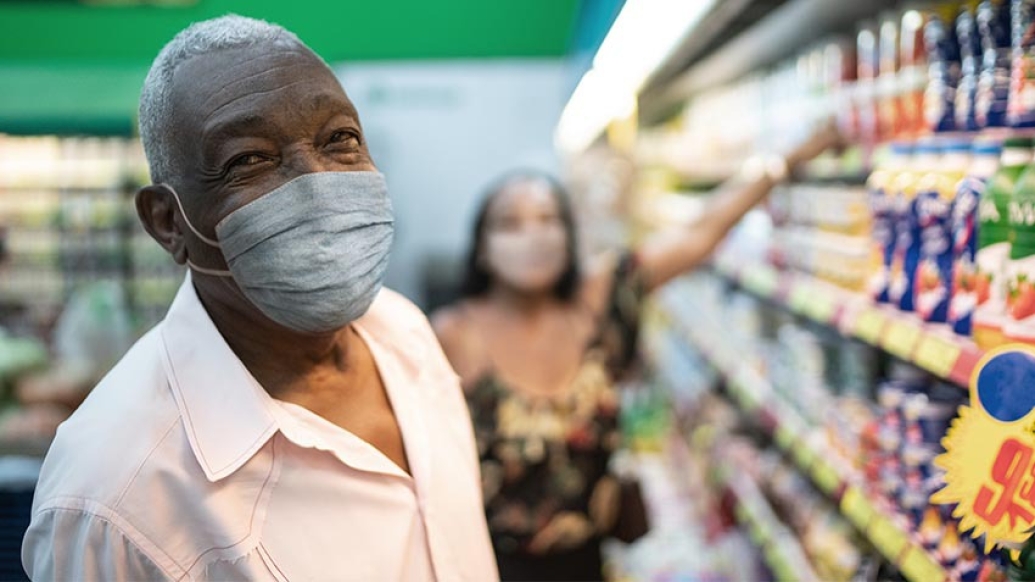A new study analyzes death risk from COVID-19 in organ transplant recipients and finds one treatment method greatly increased the risk.
2:06 PM
Author |

A new study, published in Transplantation, finds that risk of death from COVID-19 in organ transplant recipients may be based upon how the patient was treated.
"Using data from the COVID-19 Rapid Response Registry, we examined COVID-19 positive adult solid organ transplant recipients and non-transplant patients that were matched to them on age, race and whether they were admitted at the hospital or seen at an outpatient facility," says lead author of the study, Pratima Sharma, M.D., an associate professor of medicine and a transplant hepatologist at Michigan Medicine.
Sharma says the demographics of patients included in the study were also consistent with COVID-19 patient trends throughout the state of Michigan.
SEE ALSO: Seeking Medical Care During COVID-19
"Black Michiganders represent 15% of the total population in the state and account for 42% of COVID-19-related deaths, compared to white Michiganders who represent 75% of the population in the state and 26% of deaths from COVID-19," she says.
"These statistics are also valid for solid organ transplant recipients, and while Black patients account for one tenth of all organ transplant recipients in our University of Michigan Transplant Center, they represented two-thirds of the COVID-19 positive organ transplant recipients group in this study," she adds. "These results highlight the racial inequities that have overwhelmed the United States health care system during this pandemic."
The research team found that disease severity and intubation rates were similar among both solid organ transplant recipients and non-transplant patients, but organ transplant recipients needed more renal replacement therapy, which takes over functioning for the kidneys when they are failing.
SEE ALSO: Keeping Our Patients Safe During COVID-19
While death due to severity of the virus was similar in both groups, the use of hydroxychloroquine treatment was associated with higher death rates among the organ transplant recipients.
"In fact, we found that the treatment of hydroxychloroquine among organ transplant recipients was associated with ten-fold higher risk of death compared to not using the treatment among the recipients," Sharma says.
MORE FROM THE LAB: Subscribe to our weekly newsletter
Sharma and her colleagues hope that these findings encourage further scrutiny of hydroxychloroquine use in organ transplant recipients infected with COVID-19.
The study research team led by Sharma includes Michigan Medicine researchers from five divisions/units: Vincent Chen, M.D., Vaiibhav Patel, M.D., Michael Combs, M.D., Silas Norman, M.D., Puneet Garg, M.D., Monica Colvin, M.D., Jonathan Golob, M.D., Ph.D., Mona Doshi, M.D., and Keith Aaronson, M.D., M.S., of the Department of Internal Medicine; Christopher Sonnenday, M.D., MHS, of the Department of Surgery; Christopher Fung, M.D., of the Department of Emergency Medicine; Emily Somers, Ph.D., of the U-M School of Public Health; and Jonathan Troost, Ph.D., of the Michigan Institute for Clinical and Health Research.
Paper cited: "COVID-19 Outcomes Among Solid Organ Transplant Recipients," Transplantation. DOI: 10.1097/TP.0000000000003447

Explore a variety of health care news & stories by visiting the Health Lab home page for more articles.

Department of Communication at Michigan Medicine
Want top health & research news weekly? Sign up for Health Lab’s newsletters today!





